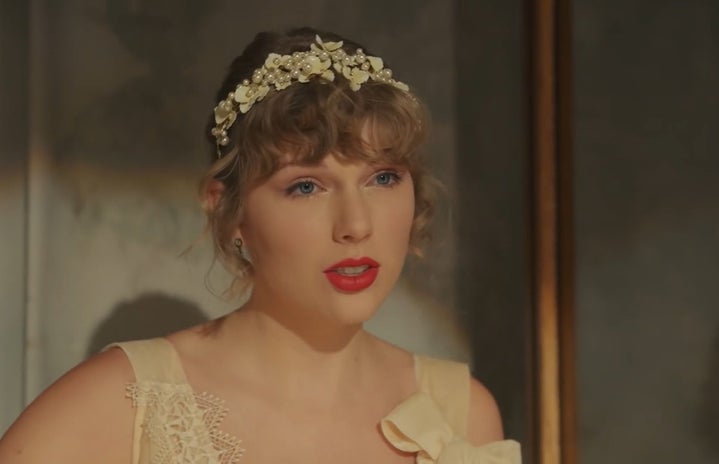In anticipation of Taylor Swift’s The Tortured Poet’s Department, I went back and admired the vault tracks on the “Taylor’s Version” albums. “Babe” ranked as one of my favorite vault tracks on Red (Taylor’s Version), highlighting the tragedy, depth, and strength of Taylor’s young love.
Recap of the song: In the vault track “Babe,” Taylor mourns the last time she ever called her ex “babe” after discovering her lover broke their relationship’s trust, loyalty, and bond through an act of infidelity. Taylor tells her ex-lover he’s gone too far this time. She could get over some of his cloudy grey and silver-colored actions, but cheating was a shade of charcoal to her. To most lovers and givers, sleeping with another person is wrong in a black-and-white way. Taylor asserts her hurt; “This is the last time I’ll never call you, babe.”
Inspired Feminist Perspective:
The term “babe” represents an endearing nickname; it is a name to call someone you share an intimate bond with, an expression of love. The word “babe” often is perceived as a silly expression; it is not an expression that conveys the depth of Taylor’s romantic love. The naive connotation of “babe” reveals society’s perception of unconditional love (a love like Taylor sings about). Many patriarchal societies view a selfless, boundless love as a fairytale, as something only young teenagers still believe in. Patriarchal societies craft a limited, societal perception of love that would call the love Taylor sings about “naive.”
While many adults listening to “Babe” may view Taylor’s sentiment (or her) as naive, I view it as resistantly and powerfully fragile. A younger version of myself really related to Taylor’s words, but I do not view my past self as “naive.” I believe my younger self was socially constructed to put romantic love on a pedestal; I grew up watching princesses finding happily ever after in a man rather than their dreams. When I started dating, I naturally thought all love would be like fairy tales. I gave so much love because love mattered so much to me, but I was called naive when relationships fell apart. I was naive for believing in love, even though my whole life, society valued me for my ability to find romantic love.
In my late teens and early twenties, I saw my girl friends love their partners with everything they have. And then I would watch their relationships fall apart. Their male partners did not know how to love; men are not socially constructed to love, and their gender is not valued by society for their ability to love. How are men supposed to appreciate the depth of a woman’s love if many men in a patriarchal society never develop the ability to love as deeply as women can? As Matt Kahn says, “despite how open, peaceful, and loving you attempt to be, people can only meet you as deeply as they’ve met themselves.”
Instead of teaching men how to love and women to expect more, the patriarchy maintains its position and power by placing blame on the giver (typically the woman). The patriarchy calls the giver naive rather than calling the taker reckless with the giver’s heart. In other words, naivety is blamed for destroying the relationship, not lack of effort. After many givers’ first loves, they may hear, “Why did you put your ex on such a pedestal? Why did you lose yourself in your partner?” Many women have this experience with their first love. Meghan Moroney relates to loving too much with a lamenting melody; “She loves the boy more than she loves the girl in the mirror.” The taker takes everything from the lover, giving back a small fraction, yet calls the giver naive because they loved too much.
Why does society view naivety with such a negative connotation? Why do we view vulnerability as weakness when it is the most difficult emotion to share? I don’t believe Taylor is naive for how she loves; her cheater lacks experience in loving deeply. To dismantle the patriarchy’s toxic perception of love, we need to collectively see the strength of unconditional love and vulnerability. We need to stop making lovers small by labeling them as naive. They are not naive. Patriarchal systems are naive because they depreciate love. Let us cherish love and restore society to prioritize love, in all forms, as its utmost value.


